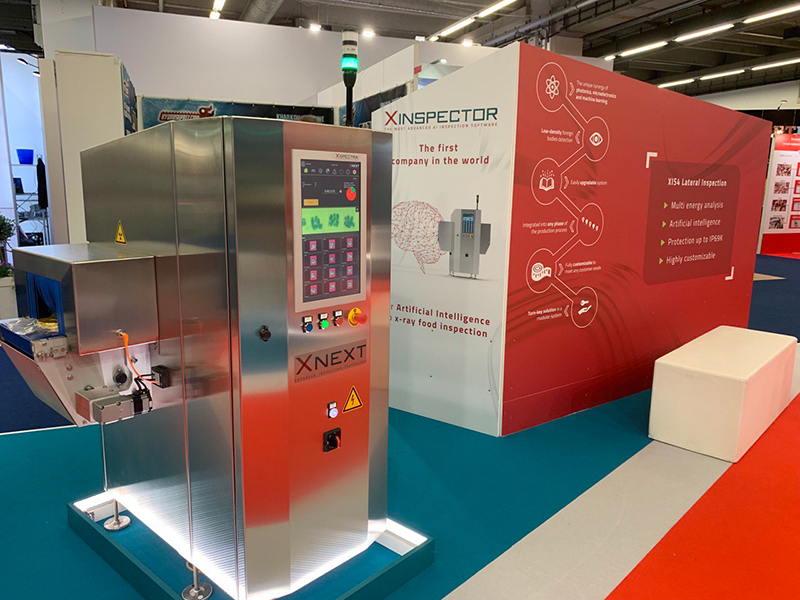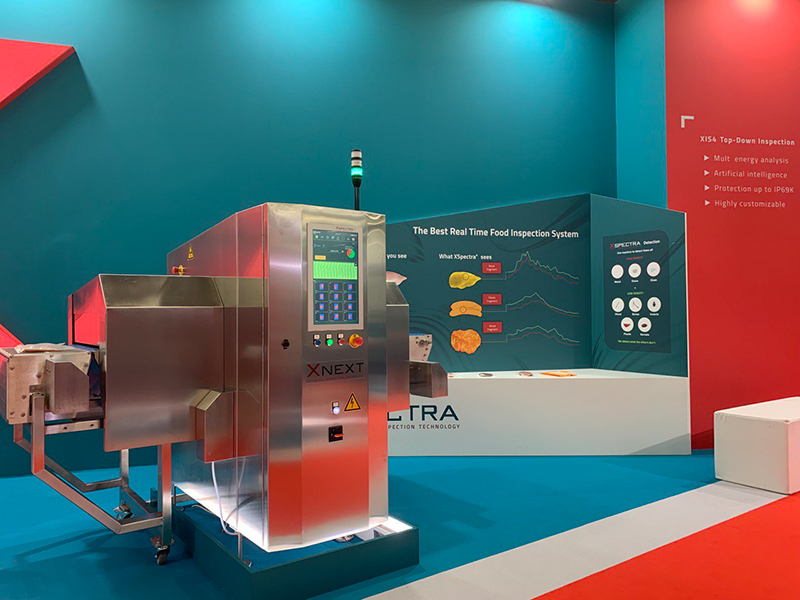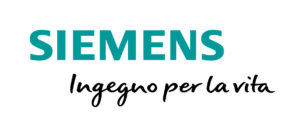Xnext delivers food safety with Xspectra: the most performant food inspection technology

Today, as a result of an increasingly global and intensive food industry, producers and consumers are paying more and more attention to food safety.
Traditional inspection systems, however, are unable to meet the increasingly stringent requirements of an extremely important sector such as the food industry.
For example they are not able to solve all the problems related to food contaminations by foreign bodies inside food products coming off production lines.
Xnext was able to identify the problem and designed and developed a solution: XSpectra, the revolutionary multi-energy X-ray inspection technology capable of changing the paradigm of in-line quality control in the food industry. Like no other system in the world, XSpectra is able to identify, directly in the production line, high and low density foreign bodies such as plastics, bones, cartilages, insects, woods and organic residues in fillings and it’s also able to achieve excellent results in the detection of glass fragments in glass and metals in metal, ensuring unparalleled food safety.

What distinguishes XSpectra from the inspection systems currently on the market is that the latter exploit only a fraction of the potential that X-ray inspection can provide.
In fact, XSpectra is the most advanced X-ray inspection system in the world because it is the only one so far conceived that is capable of analyzing up to 1,024 energy levels, as opposed to only one or two energy levels of its competitors.
This is made possible by a completely in-house developed state-of-the-art detector consisting of photonics and nuclear electronics. To this hardware, Xnext was the first in the world in the field of food inspection, to combine an artificial intelligence software that is developed for each product and is trained to recognise foreign bodies and non-conformities on a wide variety of products thanks to neural networks. XSpectra can work with both bulk and processed, ready-to-ship products, and can be installed at any point in the production line, thus operating at any stage of the manufacturing process. In this way, it can immediately decree the conformity of the product to the required quality standards, ensuring a high level of food safety for both producers and their end consumers.

By using XSpectra on their line, food companies can also benefit economically as the detection of foreign bodies within the food directly at the production line reduces the number of rejects and recalls of entire batches from the market, which also have a high reputational and environmental cost.
To better understand the problem, in the US market alone, foreign-body contamination has an economic burden worth about $50 billion a year. According to the Canadian Food Inspection Agency between 2015 and 2017 there were 317 product recalls due to foreign bodies. To quantify the waste of resources and the environmental burden of recalling an entire batch of food products, a study was conducted by the Water Footprint Network, according to which recalling a single can of tomato sauce from the market wastes 225 litres of water and 1.5kg more Co2 emissions.
Xnext is present with its own installations in important food companies active in various food sectors: bulk and processed meat, dairy, filled pasta, biscuits, pulses, salads and vegetables.
There are already 16 active installations, in Italy and France where a branch was recently opened, but it is ready, by the end of the year, to land in North America where it will install three inspection systems between the USA and Canada for an important customer.
This is an important growth milestone for Xnext which aims to become the world market leader in food inspection systems ensuring the highest level of food safety worldwide.
However, XSpectra’s technology does not stop at the food industry as it can also be applied in the pharmaceutical field to detect contamination within medicines, in the materials recycling sector by helping to improve recycling efficiency by allowing materials to be characterized according to their different polymer composition, enabling specific selection with maximum precision, in security controls and NDT tests.
For more information:
www.x-next.com
info@x-next.com














